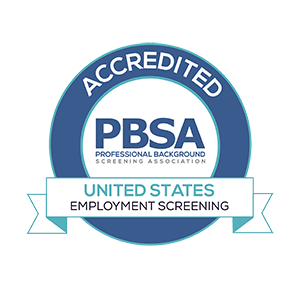As a job applicant, you may find yourself worrying about background checks to the point where you wonder if they will find out about that 4th grade test you cheated on. While employers won’t dig as far back as middle school, they certainly will check up on some of the major aspects of your life.
96% of recruiters in the USA claim that they run background checks on candidates so the chances of you being screened for a job you applied for are very high. The obscurity of the process however leads to confusion regarding what your rights as an applicant are.
What Are They Looking For?
When you apply for a position, the recruiter will typically check up on 3 aspects of your life; your credit history, criminal record, and claims made in the resume. How recruiters deal with the information revealed due to these screenings is based on their own discretion.
When it comes to credit history, recruiters are looking for an adequate credit core which indicates your reliability as an employee to the company. The criminal record is a tricky subject where the employer may offer a second chance. False claims however will most certainly throw you out of the job hunt.
Permissions
One thing that the applicant must keep in mind is that no background check can be run without your explicit permission. Employers must ask for permission before running screenings on an applicant. In fact, a release needs to be signed by the candidate.
Rejecting a Candidate
When a candidate is rejected for a position based on information revealed as a result of the background check, the employer is liable to provide the information to the applicant and clarify the reason for the rejection. The name of the company that was responsible for the background check also needs to be mentioned.
Copy of the Report
When an employer rejects your application due to a background check, they draw up a report. The candidate is entitled to receive a copy of the report for free in order to verify the information for themselves. This report not only needs to be provided for candidates and applicants but also for current employees that the background checks have been run on.
Exclusions
There is some information which is free of scrutiny when it comes to the background check. If ten years have passed a bankruptcy that appears on your credit report, the information is off limits to recruiters. Additionally, any civil lawsuits, judgments or arrests made seven years prior to the application are also excluded from the background check. Tax liens that have been paid 7 years prior can also be excluded.
Background checks shouldn’t be so intimidating for candidates that have not made false claims on their resumes. Employers basically want to verify how truthful you are in your claims and whether you really are perfect for the job.


Leave a Reply
Want to join the discussion?Feel free to contribute!